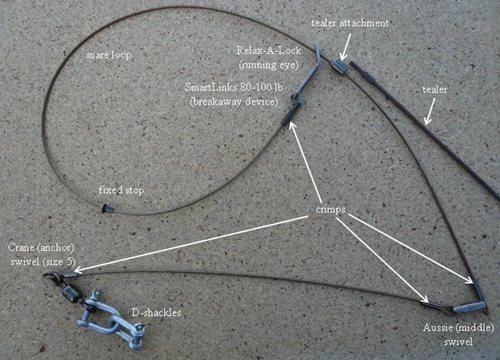Written by GWCT’s Head of Education, Mike Swan

Those who saw the feature on fox snaring on Sunday’s BBC Countryfile will be rightly annoyed that it did not show modern practice in a fair light. As far as I could see, every single ‘bad’ picture showed an animal caught by methods, and using snares, which are illegal in Scotland, and against the current codes of practice for England and Wales.
GWCT has invested a huge amount of effort in researching the fox snare and how to use it. We promote training and systems which are much more selective than of old, and meets the requirements of the Agreement on International Humane Trapping Standards. It also ensures that the vast majority of captures are unharmed, and therefore any non-targets can easily be released.
What’s more, there is little or no reduction in fox capture and retention rate compared to old fashioned methods.
GWCT research clearly shows that fox control by gamekeepers is fundamentally important to conservation beyond just game, along with the protection of farm livestock enterprises. Ground nesting birds from curlews to corn buntings benefit from the fox control work of gamekeepers, and properly used snares are a crucial part of that. We must not increase the risk of losing this method of control by allowing bad practice to continue. Anyone who is not following the modern, humane way should be ostracised by the game management community. It is highly likely none of BBC Countryfile’s horror pictures would have happened if the rules of law and best practice had been followed. Nor should snares that do not comply with legislation or best practice remain available to be purchased, as they appear to be from some outlets.
Financial cost and mental effort are required to remain compliant and highly skilled, and these burdens are necessary if we wish snaring to be defensible and thus remain a contributor to our countryside’s conservation.